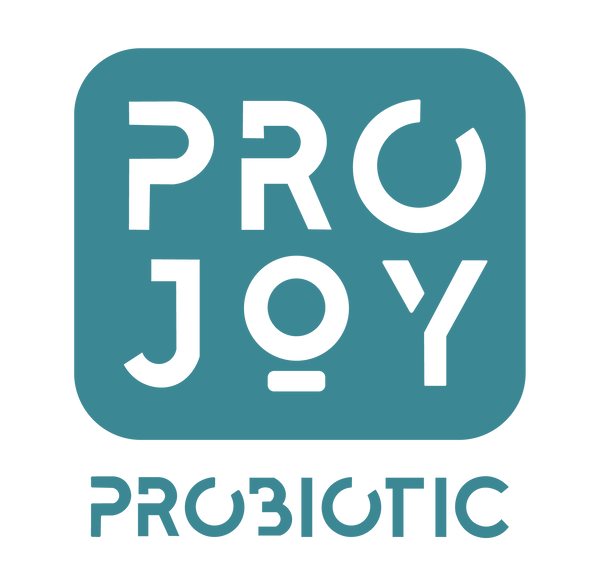Health benefits of probiotics and their by-products
Share
Probiotics and their bioactive by-products have a wide range of health promoting effects, including protection against infectious agents, immunomodulatory effects, anti-allergenic effects, anti-obesity effects, anti-oxidant effects, enhancing the bioavailability of vitamins/minerals, anti-anxiety effects, among others.

Consuming probiotic-rich foods helps us maintain our weight and reduces our risk of developing cardiovascular disease (CVD) and type 2 diabetes mellitus (T2DM).
Probiotic foods have been shown to improve the mechanisms involved in glucose metabolism, reduce muscle pain associated with resistance exercise, and have anti-obesity and anti-diabetic properties.
Probiotic-rich foods can help with the resolution of inflammatory bowel disease (IBD) symptoms by repairing, regaining, and restoring damaged gut microbiota.
The ability of probiotic food powders like Projoy probiotics to positively modulate the gut microbiota, either by stimulating the proliferation of beneficial microbes or by introducing novel species into the gut, accounts for the majority of their benefits.
Probiotics appear to play a role in hypocholesteremic and anti-cancer properties, as well as improvements in mood and cognitive function.
Probiotics' bioactive components, such as angiotensin converting enzyme (ACE)-inhibitory peptides, exhibit anti-hypertensive properties and could potentially be used as an alternative therapeutic option to manage hypertension.
Some probiotic strains have the ability to produce exopolysaccharides (EPS), which have been shown to have anti-diabetic, cholesterol-lowering, anti-oxidant, and immunomodulatory properties. The cholesterol-lowering properties of these probiotic bacteria EPS are most likely elicited by decreasing cholesterol absorption in the gut, stimulating bile acid release, and binding cholesterol.
Apart from their cholesterol-lowering properties, EPS plays an important role in host-microbe interactions by assisting microbes in colonizing the gut and exerting immunomodulatory effects.
Several of these probiotic strains can also produce enzymes like amylase, protease, lipase, and glucoamylase, which aid in the breakdown of complex inedible substrates, allowing for increased nutrient absorption.
Other gut-associated benefits of probiotic foods include
- increased mineral absorption due to phytic acid breakdown,
- lactose intolerance,
- inhibition of antibiotic-associated diarrhea (AAD), and
- anti-tumor effects, among other things.
Finally, probiotics generate antimicrobial end-products such as bacteriocins (ribosomally synthesized peptides) that protect us from a variety of infections.
This summary is based on a research paper published in the journal Nutrients on Jun 2022
Prebiotics represent another important avenue with respect to beneficially modulating the gut microbiota.
Indeed, a number of studies and reviews have highlighted the ability of prebiotics such as inulin, fructo-oligosaccharides (FOS), and galactic-oligosaccharides (GOS) to modulate the gut microbiota, thereby leading to improvements in gut health and overall health.
To get your own probiotics and reap these benefits, Click Here
